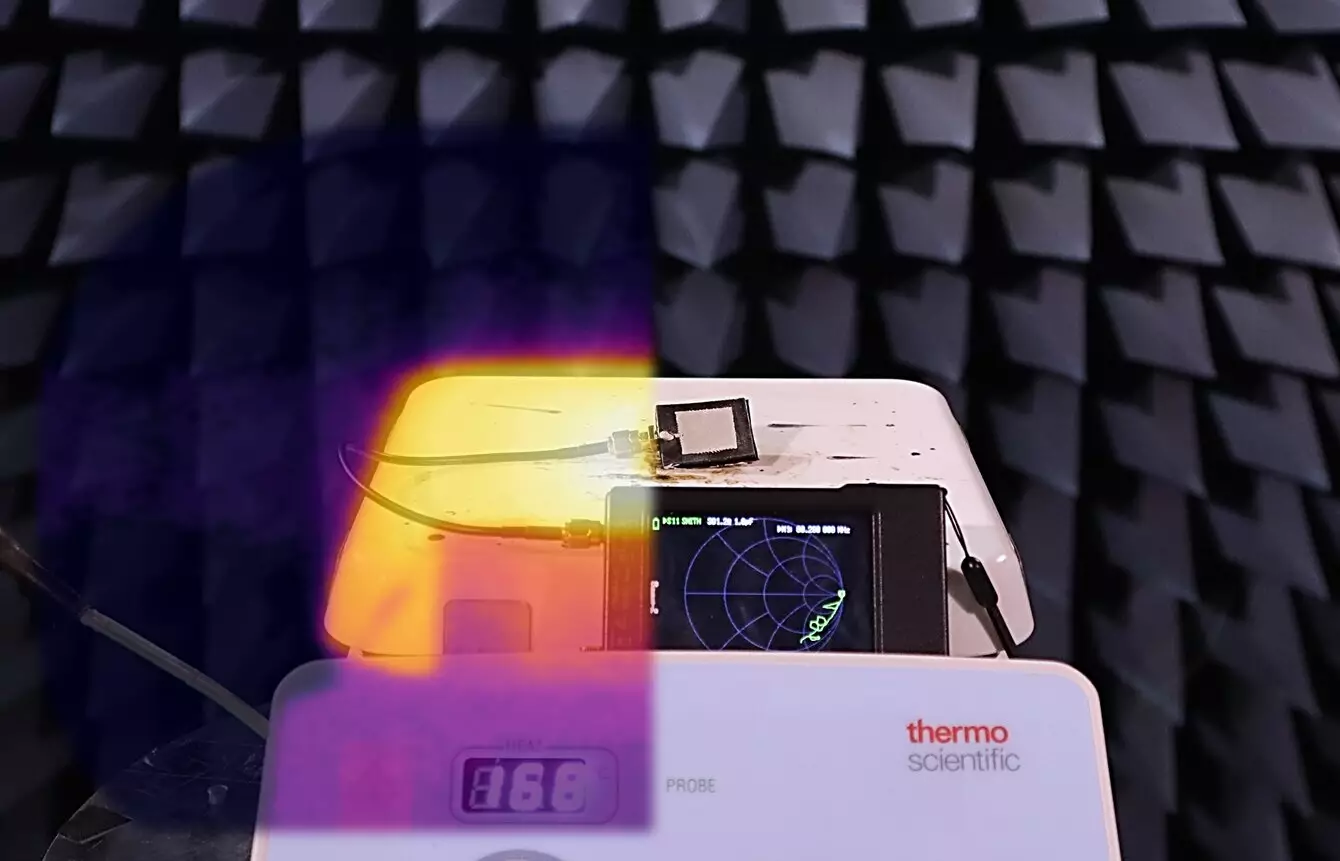Engineers from prestigious UK universities have recently unveiled a groundbreaking method of measuring temperature using a soft and flexible “smart skin” sensor. Unlike traditional thermistors, this sensor is composed of a composite material comprised of carbon fibers and silicon rubber, making it both flexible and versatile. The remarkable feature of this sensor is its ability to detect and interact with electromagnetic waves, eliminating the need for battery power or onboard processing. The team’s paper, titled “Wide-range soft anisotropic thermistor with a direct wireless radio frequency interface,” has been published in the esteemed scientific journal, Nature Communications.
Typical temperature sensors, such as thermistors, are limited in their ability to measure temperature variations within a narrow range. This limitation necessitates the use of multiple thermistors to cover a wide sensing range. However, the newly developed soft and flexible temperature sensor revolutionizes temperature sensing due to its unprecedented range. This innovative sensor is capable of measuring temperatures from a chilling -30°C to an astonishing 200°C and beyond. This breakthrough could potentially reduce the number of sensors required in electronic devices, making wireless sensors more accessible and environmentally sustainable.
The research team, led by experts from the University of Glasgow, employed advanced 3D printing technology to mold the flexible material into various components, including antennas, RFID labels, and resonators. To evaluate the sensor’s performance at different temperatures, ranging up to an impressive 300°C, the team conducted extensive tests on its ability to absorb radio-frequency (RF) radiation. The results demonstrated the sensor’s exceptional sensitivity to temperature changes, setting a novel precedent in the field of RF temperature measurement.
Dr. Mahmoud Wagih, UK IC Research Fellow and Lecturer at the University of Glasgow, describes the significance of this breakthrough by stating, “Sensors are the main interface between the analog world and smart devices. To communicate real-world changes in measurements like temperature or humidity to wireless smart devices, those measurements first need to be digitized.” Dr. Wagih further explains that the team achieved this by designing a simple, yet highly effective, soft composite using commonly available silicone and carbon fibers. This composite material can be effortlessly molded into any desired shape, opening up endless possibilities for the design and integration of antennas over large areas. These antennas can then emit signals that exhibit high sensitivity to temperature changes, enabling precise temperature measurements.
The development of this flexible and stretchable sensor material was made possible through collaboration between engineers from the University of Glasgow and the University of Southampton. The unique properties of this material allow for seamless integration into flexible electronic devices and smart fabrics, promising a future revolution of bendable electronics. Researchers from Loughborough University also contributed to the project by characterizing the material’s electrical properties, proving its functionality up to a frequency of 26 GHz, delving into the spectrum of 5G communication technologies.
The team of engineers involved in this groundbreaking study envisions a myriad of future applications for their creation. The “anisotropic” properties of the composite material, which cause its interaction with electric fields to vary in different directions, can be further tailored to enhance or diminish sensitivity to specific wireless signals. This adaptability unlocks the potential for diverse applications in vital sign monitoring, radar sensing, satellite communications, and the much-anticipated 6G wireless networks. Dr. Wagih, the driving force behind this exceptional research, will continue to explore the possibilities of utilizing functional and natively stretchable materials for wireless sensing, particularly in sustainable and biodegradable wireless electronics.
The development of the soft and flexible “smart skin” sensor for temperature measurement marks a significant breakthrough in the field of sensing technology. This remarkable innovation offers a wider temperature sensing range than ever before, while also providing durability, flexibility, and ease of integration into various devices. By eliminating the need for multiple sensors and offering precise temperature measurement capabilities, this sensor has the potential to reshape the landscape of wireless sensing and contribute to a more sustainable future. As research continues in this field, it is thrilling to imagine the countless applications that will emerge from this groundbreaking development, paving the way for endless possibilities in the world of technology.


Leave a Reply